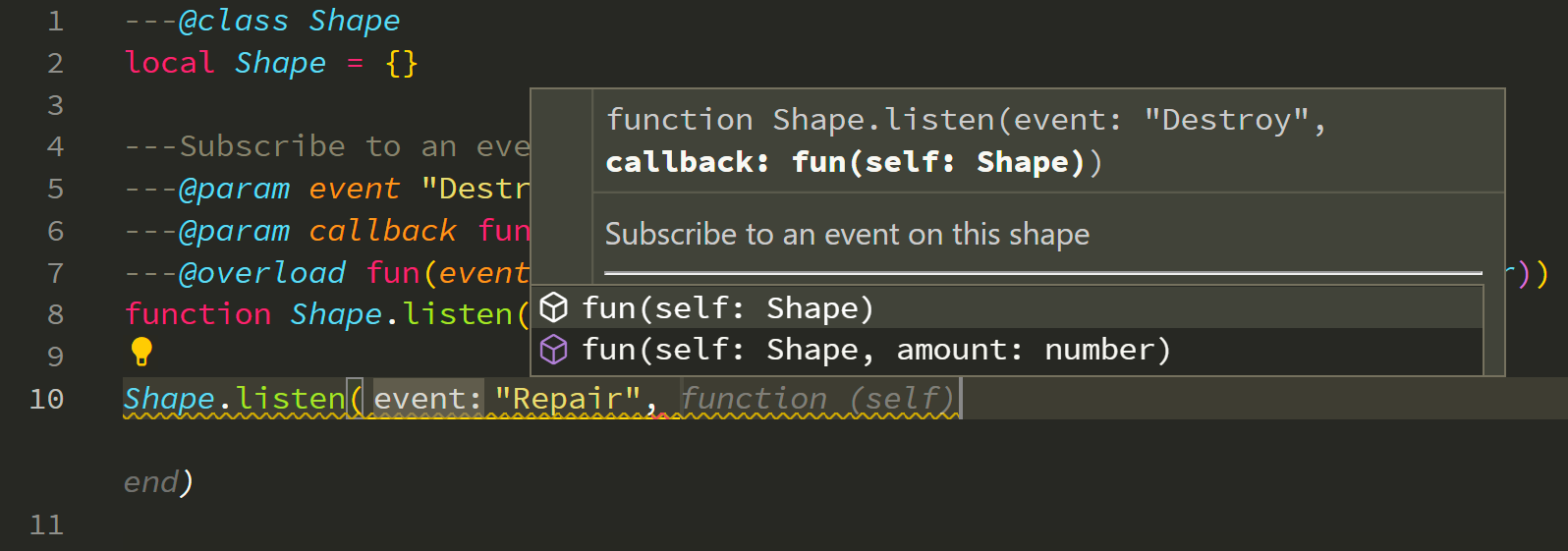-
-
Notifications
You must be signed in to change notification settings - Fork 385
Description
The Problem
I think function overloading needs some changes in order for it to really function in the way that most people would find useful. This is especially problematic with event systems, as I and others have encountered.
Example
Currently, let's say I have the following function that I want to provide an overload for:
function Shape:listen(event, callback) endUsing @overload
The first logical option is to use @overload:
---@class Shape
local Shape = {}
---Subscribe to an event on this shape
---@param event "Destroy"
---@param callback fun(self: Shape)
---@overload fun(event: "Repair", callback: fun(self: Shape, amount: number))
function Shape:listen(event, callback) endBut there is a problem, when using methods (:), the first parameter only gets completions for the first @param and ignores the @overload entirely.

Ok, so for testing, let's replace the method (:) with a static function (.):
---@class Shape
local Shape = {}
---Subscribe to an event on this shape
---@param event "Destroy"
---@param callback fun(self: Shape)
---@overload fun(event: "Repair", callback: fun(self: Shape, amount: number))
function Shape.listen(event, callback) endThis still isn't great, we are still offered both callbacks even though the info we have entered only matches the @overload. At least the first parameter was completed this time.

Multiple Definitions
So then maybe we try defining multiple functions where each event param has the type set to the event name we are looking for:
---@class Shape
local Shape = {}
---Subscribe to an event on this shape
---@param event "Destroy"
---@param callback fun(self: Shape)
function Shape:listen(event, callback) end
---Subscribe to an event on this shape
---@param event "Repair"
---@param callback fun(self: Shape, amount: number)
function Shape:listen(event, callback) endNow, even as methods (:) we are receiving correct completions for the first parameter... nice! However, we are still receiving two completions for the callback - there is no narrowing happening. The completion also shows the event as "Destroy", which is incorrect for our second definition as we have only allowed "Repair".

At least when defining the function twice, we are able to write a separate description for each of them as well as their @params and @returns. However, we receive a warning saying that we have a duplicate field.
Proposed Solution
See @flrgh's idea to add a @function annotation to add more in-depth support for defining functions overall.